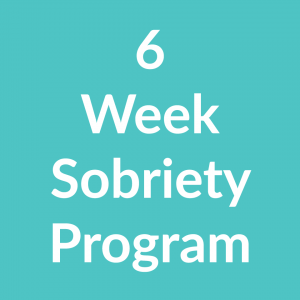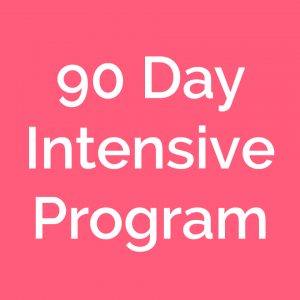When it comes to healthier eating when cutting out or down alcohol, it’s not about focusing on which foods to stay away from and feeling restrictive with your diet, but rather focusing on adding in more nutrient dense foods to it. Nutrition should never seem punitive (I love my little treats…especially dark chocolate) but rather a helpful and important component of your healing, detoxifying process, and overall lifestyle rebalancing. Note as part of my Signature 90 day Be Your Best Self Sobriety Program https://rachelhind.com/programs we cover nutrition and exercise rebalancing. Nutrition is a very important and often underestimated part of your sobriety success and progress!
The purpose of this article is to help you feel great if about to head into Dry Feb or any other sobriety period and to give you top nutritional tips to keep maximum self-care of your mind, body and soul. I know you can do this and the end result will be AMAZING!
The Australian Dietary Guidelines & Holistic Nutrition Principles agree putting mostly whole plant-based foods on your plate is the healthiest diet you can consume.
However, I believe a whole food plant-based “diet” doesn’t need to be so much of a strict diet, as it is a chosen health conscious lifestyle for many— and it’s one of the best ways to support a healthy mind and body especially when cutting out or down alcohol. Note I am not strictly all plant based diet. I eat animal protein but very rarely, however, in the early stages of my sobriety (first 8 weeks) I followed the whole food plant based guidelines.
Plant foods (aka: the unprocessed foods found in nature) provide your body with healing anti-inflammatory compounds, fibre, and essential vitamins and minerals. All of these nutrients are crucial for healthy liver function, which in turn promotes restful sleep, fewer cravings, and a happier mood.
As you may know, your liver is the primary organ of detoxification and is responsible for eliminating harmful toxins from drugs and alcohol from our system. While your liver is an extremely capable detoxifier and does a damn good job of repairing itself, eating plant based foods that are rich in nutrients and support healthy liver function can accelerate your detoxification, and make a huge difference in how well your digestion and elimination functions overall.
Heavily processed, deep fried, fatty and oily foods can slow your liver function down, which is why choosing to eat a plant-based diet that eliminates these foods is a huge step towards feeling your best.
What is a plant based diet?
When you eat plant based foods, you simply focus on eating the nutrient-rich unprocessed foods found in nature such as fruit, vegetables, whole grains, nuts, seeds and legumes, while limiting processed foods.
Most processed foods contain very few nutrients and are known to cause inflammation in the body, which prevents you from healing. These foods include refined sugar and flour, caffeine, dairy products, and heavily processed oils (trans fat oils…think donuts, fish n chips, potato chips). Eggs, meat, poultry, dairy and fish are typically NOT part of a plant based diet, however, plant based diets can vary depending on a person’s unique needs. A whole food plant-based diet isn’t meant to be restrictive. It is simply a sustainable way of adopting healthier eating habits to provide your body with maximum nutrition.
Let’s take a look at three reasons to transition to a whole food plant based diet when you are trying to cut out or cut down alcohol?
3 ways a plant-based diet can help you with an alcohol detox and cravings
- A plant based diet may Help you address the underlying problems sooner
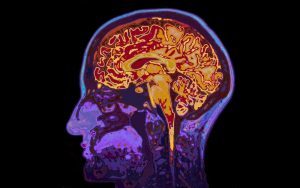
A diet that is focused on whole, unprocessed foods eliminates the foods we find most addictive, such as caffeine, sugar, and processed carbs (bread, cakes, donuts, pastries, pasta). These foods can become addictive because they can cause a rapid surge in dopamine levels.
While these foods may seem like the lesser of the evils when we are cutting out the booze, they are merely a band-aid solution and often a substitute for your cravings. In the very short term this may be OK but if continued will serve as a distraction and provide you new comfort when challenging emotions surface— which prevents you from getting to the bottom of your problem for drinking in the first place!
On the other hand, certain plant foods such as nuts, seeds, bananas and certain super foods can gently boost dopamine levels (which makes them less addictive) while also providing several essential nutrients that aid in liver function.
- The fibre from plant foods improves gut health, which can directly improve your energy and mood
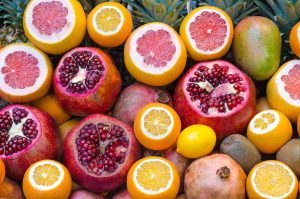
When you think of healing from long term abuse of drinking, your gut may not be the first thing to come to mind. However, the gut and the brain are interconnected and this connection explains how your gut health can directly impact your mood and cravings for addictive substances.
For example, serotonin is produced in the gut— the neurotransmitter that helps you feel good. When your serotonin levels are low, depression, anxiety, and cravings for addictive substances can increase. This is only one example of how your gut health impacts how you feel on a daily basis.
3. Organic plant foods provide Up to 40% more antioxidants than conventional produce
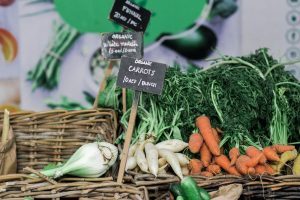
Plant based diets also focus on the quality of foods, which means choosing local (try French’s Forest Markets if local to Northern Beaches) or organic whenever possible because they’re lower in pesticides and higher in nutrients. While it is not always realistic or affordable to choose organic year round, you can check the dirty list https://www.ewg.org/foodnews/dirty-dozen.php to see which foods should be purchased organic whenever possible.
By switching to organic plant-based produce, you can increase the amount of antioxidants in your diet by 20- 40 percent, that is TRUE! These antioxidants support both phases of liver detoxification which neutralise harmful drugs and toxins to be eliminated safely from your body.
Tips for transitioning to a whole food plant-based diet IMMEDIATELY
1.Start simple with having one green smoothie per day
Your first step to starting a plant-based diet is to establish a healthy eating routine. People in early sobriety may crave sugar as alcohol, especially wine has high sugar levels. Your diet has an impact on your progress and often your long-term weight loss, as typically we are all expecting to lose weight if we are not drinking, right?
Anyway not sure where to start? Keep it simple. Choose to begin your day with a green smoothie (search Pinterest for great ideas) but use mainly fresh fruit, vegetables, coconut water, and greens. If you’re pressed for time in the mornings, wash and chop your ingredients the night before so that all you need to do is throw your ingredients in a blender, and pour into a to-go cup. Or if really pressed take buy a greens powder ie Vital Greens is good and put that in your smoothie!
- Don’t forget to snack on fruit
Aside from providing essential nutrients, fruit offers a quick burst of energy and soothes sweet cravings. Plus, fruit is nature’s ultimate “fast food” that you can grab from a fruit bowl on your way out the door— no meal prep, clean up or elaborate gourmet cooking necessary!
- Stock up on leafy greens
Leafy greens are one of the most powerful foods for liver health, especially when your body is going through a more intense detoxification period. Leafy greens include spinach, kale, broccoli, and lettuce. You can easily add a handful of these to your smoothie, have a small side salad with your dinner each day, or steam in a small amount of unrefined coconut oil and pure sea salt, which makes a tasty side dish to any meal.
- Add protein and healthy fats to every meal
While fruits and vegetables are a great source of antioxidants and energy boosting carbohydrates (and they do also contain smaller amounts of plant protein), you still need to incorporate higher protein foods to repair damaged cells.
Protein and healthy fats also help balance your blood sugar levels which can reduce sugar cravings, fatigue and irritability, and keep your appetite satisfied for longer periods of time. A few examples of plant based proteins and healthy fats are lentils, beans, wild rice, quinoa, and coconut oil, as well as hemp seeds, avocado, nuts and other seeds.
Ph: Rachel 02 9016 2839 (24/7 support)
Email:info@Rachelhind.com
Facebook:www.facebook.com/rachelhindbeyourbestself
Website: www.rachelhind.com


